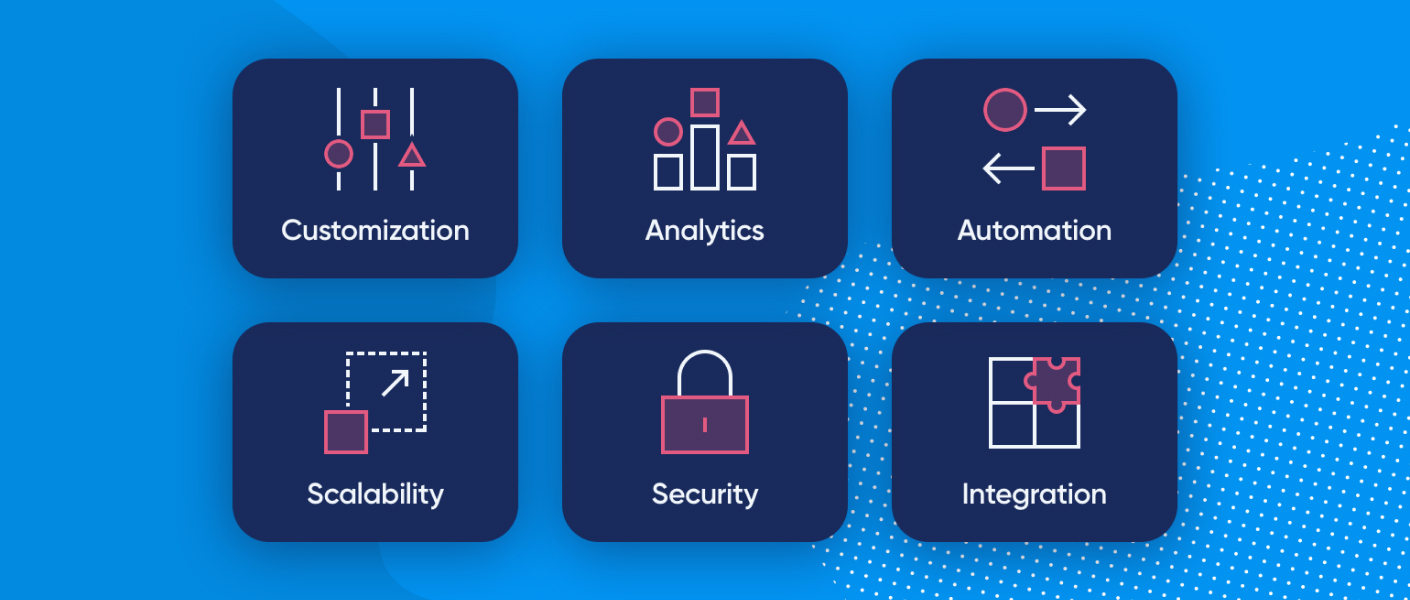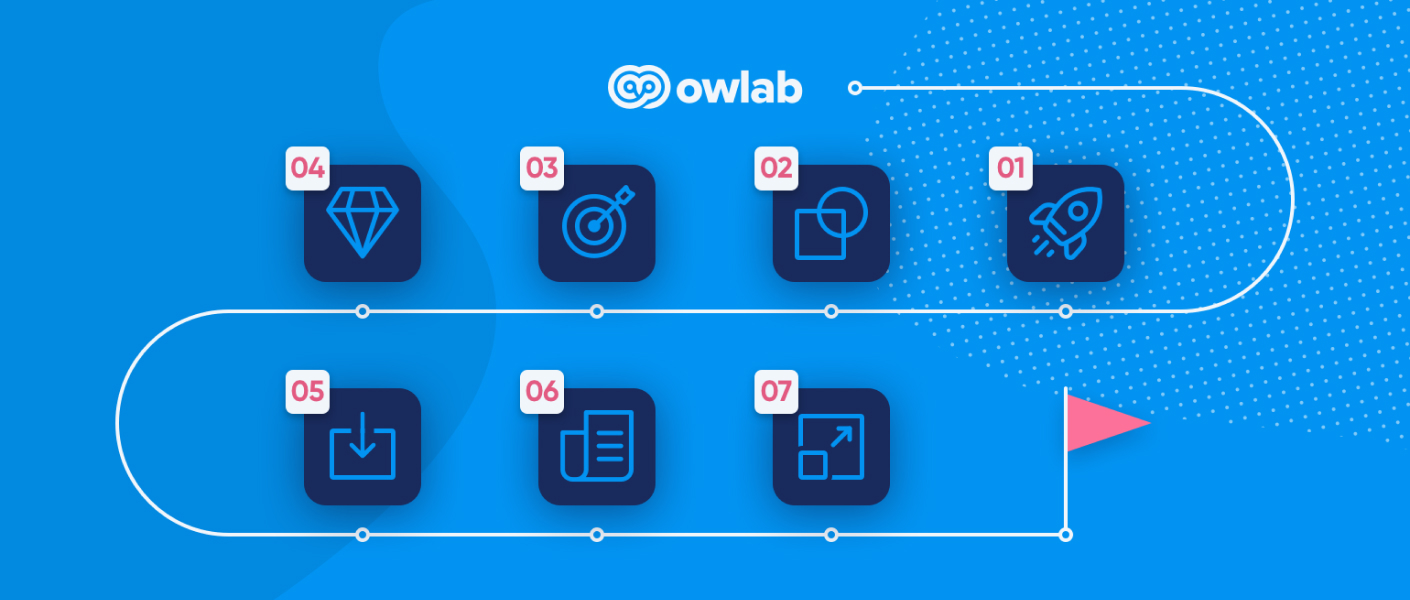“If there’s one reason we have done better than any of our peers in the Internet space over the last six years, it is because we have focused like a laser on customer experience, and that really does matter, I think, in any business. It certainly matters online, where word-of-mouth is so very, very powerful.”
These words belong to Jeff Bezos – I think we can all agree he knows the vital importance of customer satisfaction. Amazon is one of the most expensive and successful companies in the world, raising customer focus to the standard of biblical commandments.
Loyal customers are behind any thriving business. If you're focused on growth and development, it's time to build lasting relationships and deliver a uniquely personalized experience. Here is where CRM software comes into play.
Customer relationship management (CRM) systems gather and analyze consumers' information throughout your company's entire interaction journey. With this software in place, businesses are equipped with a powerful tool to create effective marketing, increase sales, and gain a competitive advantage.
For example, communicating with clients to address an issue from a previous call will show them you care and they can trust you. It will lead to stronger relationships, increased loyalty, and, quite likely, attract new clients – thanks to recommendations from the existing clientele.
CRM helps increase customer retention rates up to 27%, sales conversion up to 300%, and generates 8.71 USD in revenue for every dollar invested in development. However, more than half of the companies have not implemented ready-made software into their business processes. And this is not surprising. No matter how typical your firm may seem in terms of operation, its internal processes remain unique. This is why it is nearly impossible to find one-size-fits-all software.
Custom CRM software is a powerful program tailored to your company's needs and peculiarities. It allows you to get the most out of your business automation without compromises and concessions. By forging a stronger bond between your brand and customers, you create fertile ground for growth, a confident market entry strategy, and resource optimization.
In this article, Owlab will uncover the things to consider before you build a CRM from scratch, and what benefits a personalized customer relationship management system can bring to businesses.
Benefits of a Customer CRM
Before exploring the specific benefits that a business gets when applying CRM development, let's define the functions that justify the systems' integration:
- Account and lead management. You can process and transform customer data, create new accounts, sort, filter, group, etc., reducing all processes to a single mouse click.
- Marketing campaign management. Your marketing team accesses proper communication and all data within one system. Experts can add information, create events, solve financial and resource issues, and achieve better results.
- Planning. CRM combines the analytical data needed to plan marketing campaigns, goals, and events, and effectively solve set tasks.
- Customer segmentation. To provide a personalized experience, it’s best to divide customers into different segments, for example, new, regular, recent purchases, and those who have long stopped using services. This strategy will allow you to launch targeted marketing campaigns and see various targeted actions.
- Standardization. You can set up a single document template or several scripts to make your workflow more efficient.
- Employee monitoring. CRM software is a handy tool to monitor and analyze the work of individual employees and departments.
You can expand and customize these functions depending on your business needs. Now, let’s explore how a business can benefit specifically.
Wondering how to build
an exclusive software product for your business?
CONTACT USThe CRM system has many advantages: from automating and streamlining several processes to efficiently working with clients, both new, current, and lost. Let's take a closer look at the reasons to develop a custom CRM solution:
- Fully adapted solution. Commercial CRMs usually have a limited feature set, making you depend on external software support. By designing a system from scratch, you receive the software that meets, supports, and maximizes your workflow. Also, you won't have to sacrifice any functionality or decide how to adjust employees' work to the ready system's existing capabilities. Custom CRM solutions are designed to support business processes, not restrict them.
- Analytics. The system collects and stores all data on customers, sales, and marketing, making it possible to use the information effectively for business growth and development, service process improvement, marketing action plans, and more. CRM can process this data and provide only what is needed, facilitating specialists' work, and allowing them to make reasonable strategic decisions.
- Business process automation. A custom-designed CRM can automate analytics, sales, marketing, document management, and many more tasks, saving businesses a lot of time and resources. Also, automation boosts the speed of performing routine tasks, leaving a positive impact on customer satisfaction.
- The scalable ecosystem of CRM applications. You can start with an MVP and expand the system’s capabilities as your business grows. This approach allows you to save money at the start and accelerate the software launch. At the same time, you will not face limited CRM functionality or inconsistency with new business processes. The custom system architecture provides scalability and the option to add new modules, which means the software can support your business at all development stages.
- Full control and high information security. CRM is a system that processes the clients' personal information, storing data on financial transactions, and critical aspects of the company's work. Protecting this information should be the number one priority for any business. However, using third-party software, you can't be entirely sure your data is secure. When you create CRM systems from scratch, you can implement the necessary security measures to keep this information safe.
- Complete integration. Third-party systems are not always compatible with the existing company software. In contrast, customized platform-based solutions will support integration with any services, platforms, and software that your business needs to function successfully.
Leveraging these benefits of CRM software – designed from scratch – will take your business to the next level.
Types of CRM Software

The first step in the CRM process flow is to determine the system type you should apply to your business. Each option is aimed at solving specific problems and performing various tasks. Let’s take a look.
- The analytical system is used to analyze data on customer behavior to make better decisions. The data is gathered from multiple channels before being structured and transmitted to the sales, marketing, and service departments.
- The strategic system is designed to maintain long-term relationships with customers by analyzing and predicting their behavior based on the collected data. For example, you can build marketing campaigns upon your target audience's real preferences, significantly increasing engagement and conversion rates.
- The operating system is focused on direct interaction between the company and its customers. This CRM allows you to collect information about each consumer from diverse sources into one file, improving service, and creating the most personalized experience.
- The collaboration system aims to improve teamwork by syncing all chats, phone calls, emails, and social media messengers in one place.
Another indisputable advantage of custom CRM development is combining various system types and modules within one unique product for your business.
What Custom CRM Development Services Include

The Owlab CRM development company helps organizations improve their business efficiency through a full development cycle of solutions for enterprises:
-
The discovery phase. The development process starts with an in-depth business analysis and careful planning of future solution functionality. We recommend customers to start with an MVP, gradually scaling the product with each new iteration. As a part of the discovery phase, we draw up a list of CRM system implementations, form a team, and create all technical and project documentation. This step includes ready-made prototypes, a technology stack, a project roadmap, and risk and change management.
- UI|UX design. Since you and your employees will work with the created system every day, the software must be understandable, convenient, and visually appealing. Our designers work out the user experience carefully and ensure every element of the user interface contributes to a more efficient workflow.
- Custom CRM development. From building a flexible architecture and writing code to integrating it with all the required services and testing – we create software that functions seamlessly, easily scales, and has high performance to meet your business goals.
- Quality assurance. To ensure exceptional software performance, we conduct a series of tests – both individual functionality and modules – during the development process and upon the finished product.
- Data migration from legacy CRM or spreadsheets. We help with data import and customize the product to keep the process simple.
- User training. We provide instructions and all the necessary information on the product usage, and, if needed, we conduct training for your employees to work with the system.
- Support and evolution. After creating the MVP, we continue to work on scaling the CRM, adding additional functionality and modules.
Integrating a fully custom CRM solution built from scratch into your business processes is an essential step towards building a competitive company. Don't let customers choose someone else; provide them with a personalized experience that leads them to you!
Contact us to find out why you need a bespoke customized CRM and estimate your custom CRM solution.